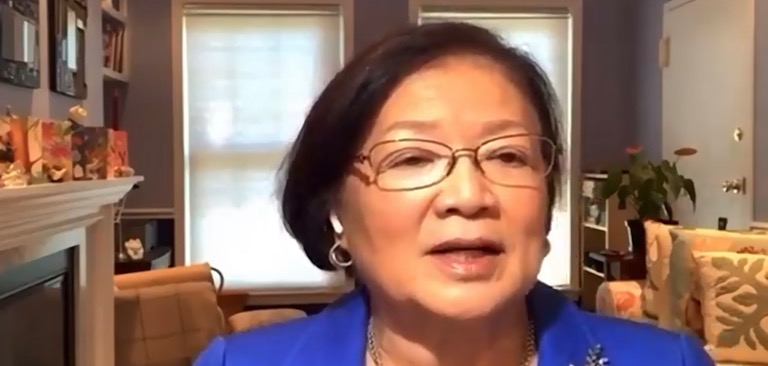The politicization of Section 230 of the Communications Decency Act (CDA), a piece of legislation that prevents online service providers such as Big Tech platforms from being held legally liable for most of the user generated content that’s posted to their platforms, has resulted in both Republicans and Democrats publicly threatening this immunity.
On the Republican side, several proposed bills and President Trump’s recent Executive Order on Preventing Online Censorship have threatened to change or remove this immunity if Big Tech platforms are deemed to selectively censor certain viewpoints.
On the Democratic side, presumptive 2020 presidential nominee Joe Biden has threatened to revoke Section 230 because social media companies such as Facebook are “propagating falsehoods they know to be false.”
And during today’s appearance at the International Forum on Social Media Election Disinformation hosted by The George Washington University Institute for Data, Democracy, & Politics, Democratic Senator Mazie Hirono once again echoed these demands for censorship, said Facebook needs to do more to stamp out “misinformation” in private groups, and threatened this Section 230 immunity.
Hirono claimed that there are “massive voter suppression efforts” being undertaken by “foreign entities” and “groups that we really don’t know very much about.”
“They create private groups on Facebook and then they put a lot of misinformation and disinformation online,” Hirono said. “So clearly these internet platforms have to do a lot more. You know, like, we all remember Mark Zuckerberg saying, ‘Facebook is not the arbiter of truth,’ except that his platform is used in a massive way for a lot of misinformation and disinformation to get out to the public about all kinds of things including voting and COVID. So clearly they need to do more.”
Unlike Facebook’s public news feeds and pages, the contents of these private groups Hirono refers to are only visible to group members meaning outsiders who aren’t members of the group can’t see what’s being shared and can’t call for specific posts to be taken down under the guise of misinformation.
While Hirono is framing her demands as something that would stop the spread of public misinformation, she is actually calling for Facebook to step in and introduce new rules that regulate what people are allowed to say in these private groups.
Facebook CEO Mark Zuckerberg recently revealed that since the coronavirus outbreak, the company has issued 50 million misinformation warning labels on posts and that 95% of the time, users don’t click through to content when it has a warning label.
Such measures already apply to links that are shared in these private groups so Hirono’s suggestions would seemingly require even more aggressive monitoring and censorship of the private conversations in these groups.
In addition to proposing that Facebook monitor these private in-group conversations, Hirono also threatened to strip Section 230 from Facebook and other Big Tech platforms if they don’t moderate their content more aggressively.
“I am not a supporter of immunizing an entire basically industry from liability,” Hirono said. “I think we need to incentivize these platforms to do content moderation. And therefore I am looking at making some changes to Section 230, which does provide them with total immunity, to, to take away that immunity and to require them to set up ways that they’re gonna do content moderation.”
Before threatening to strip away this Section 230 immunity, Hirono acknowledged that Facebook is “doing a lot” when it comes to removing content but she still demanded that they moderate content more aggressively.
If slapping more than 50 million posts with a misinformation warning and stopping 95% of Facebook users from viewing these posts hasn’t quelled these demands for censorship from Democrats, it’s unlikely that the regulation of what goes on inside these private groups will be enough to end these constant calls for censorship.













